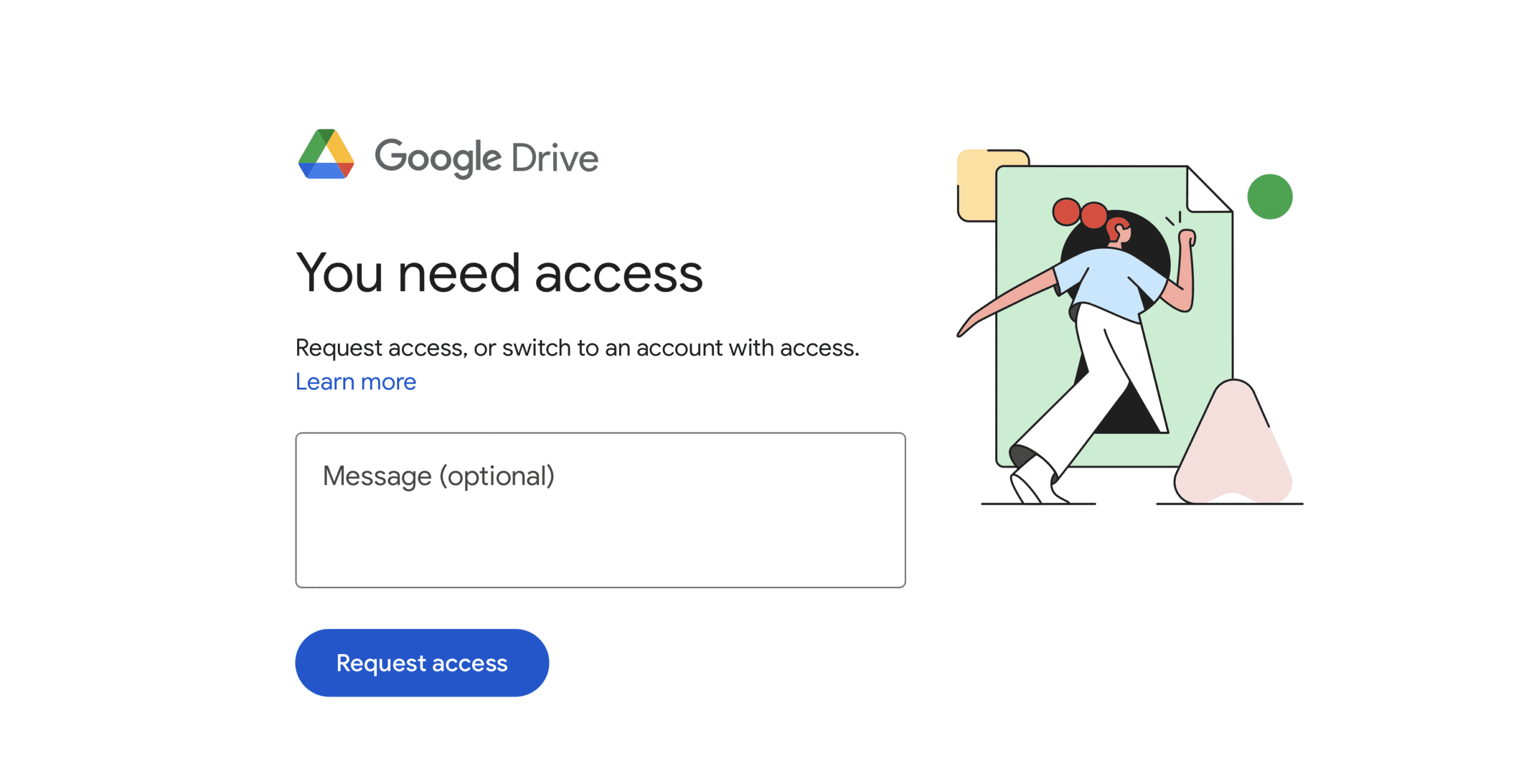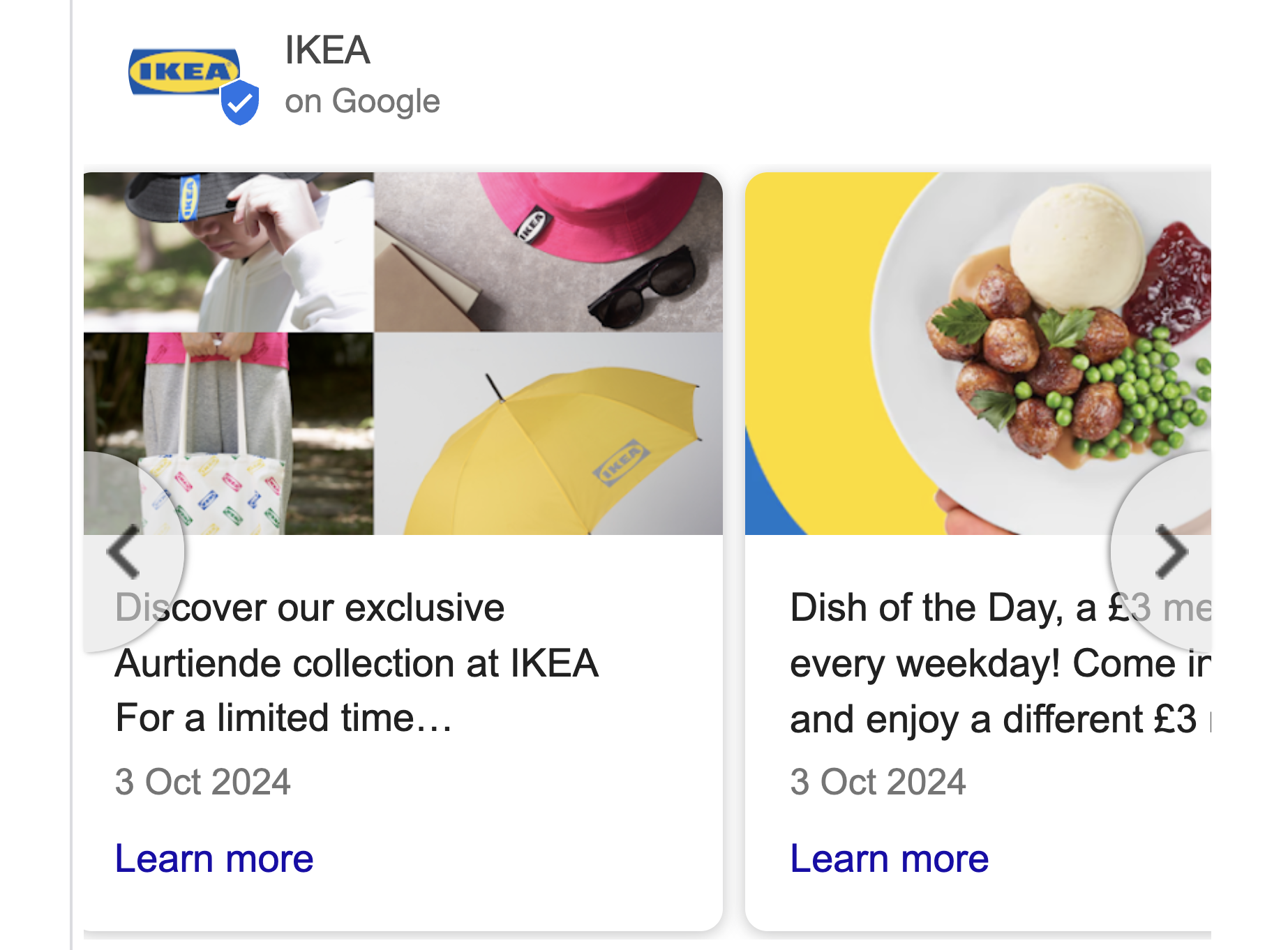Many local businesses struggle to stand out online amid fierce competition. Local SEO tactics can significantly improve your online presence and reputation management. This article will examine how to optimise your Google My Business listing, utilise local keyword strategies, and create engaging local content that resonates with your audience. By implementing these tactics, readers can enhance their branding services and web design services while driving more traffic to their website. Solving these common challenges is crucial for any business aiming to increase visibility and attract local customers.
Optimise Your Google My Business Listing for Local Searches

Claiming and verifying a Google My Business profile is a foundational step in local search engine optimisation. Accurately filling in essential business information and utilizing branding services, selecting relevant categories, and adding engaging images will enhance visibility. Encouraging feedback through positive reviews and regularly updating the listing with new web design services content further drives lead generation. Each of these practices is crucial for improving online presence and connecting with potential customers.
Claim and Verify Your Google My Business Profile
Claiming and verifying a Google My Business profile is a critical step for enhancing local search visibility. Businesses should begin by creating an account, which allows them to manage their information and engage with customers effectively. By providing accurate data, such as business name, address, and contact details, companies ensure that potential customers can easily find them through relevant searches and ads.
Verification is essential to establish authenticity and trust. Following Google’s verification process not only validates a business’s presence online but also strengthens its relevance in local search results. As part of this process, businesses should focus on keyword research to identify terms that align with their offerings and geographical area, ensuring their profile attracts the right audience.
Updating the profile on a regular basis with new content, such as images or promotional offers, can significantly improve engagement rates. Using data from customer interactions and reviews helps businesses refine their approach, making continuous improvements to meet client needs. This adaptive method not only increases relevance but also sets the foundation for successful local SEO strategies, ultimately driving more traffic and leads.
Fill in Essential Business Information Accurately
Filling in essential business information accurately on a Google My Business listing is vital for establishing credibility with potential customers. Ensuring that the business name, address, phone number, and website correspond with other online citations increases trustworthiness. When businesses present consistent information across platforms, it boosts visibility in local searches, making it easier for customers to engage with them.
Moreover, incorporating relevant details about offerings, operating hours, and service areas enhances the listing’s effectiveness as an SEO tool. This information not only aids search engines in categorising the business correctly but also provides potential customers with the precise details they need to make informed decisions. Businesses that clearly communicate what they offer are more likely to attract relevant traffic and convert leads into customers.
Regularly updating the business profile to reflect changes in services or promotions serves as an incentive for user engagement. Engaging visuals, customer reviews, and frequent updates keep the listing dynamic and encourage interactions. By prioritising accurate and current information, businesses can improve their online presence, ultimately leading to higher conversion rates and customer satisfaction.
Choose Relevant Categories for Your Business Type
Selecting relevant categories for a Google My Business listing is essential for establishing brand awareness and improving local visibility. Proper categorisation not only enhances how the business appears in search results but also aids in connecting with the right audience. When customers search for specific services, having the correct categories helps in improving page rank on search engines, allowing businesses to attract more qualified leads.
Engaging with customers through platforms like Apple Maps further solidifies a business’s online presence. By ensuring the chosen categories on Google My Business also reflect on Apple Maps, businesses can capture a broader audience. This cohesion in categorisation not only enhances visibility across various platforms but also fosters customer trust and loyalty, ultimately driving more foot traffic and online engagements.
Add Captivating Images Showcasing Your Offerings
Adding captivating images to a Google Business listing plays a significant role in attracting potential customers, especially in competitive markets like London. High-quality visuals showcase offerings effectively, capturing the attention of users who may be influenced by word of mouth. When potential clients see engaging images, they are more likely to visit the business’s page, leading to increased website visits and a higher likelihood of interaction.
Images that include the business’s telephone number or URL can further enhance the chance for immediate customer engagement. By displaying contact information visually, businesses make it easier for potential clients to reach out directly, fostering a sense of trust. This approach will not only enhance the online presence in local searches but also create a seamless experience for users looking to learn more about the business’s offerings.
Regularly updating the Google Business listing with new images keeps the content fresh and relevant, driving ongoing customer interest. Photographs that reflect seasonal changes, new products, or customer interactions can provide context and create an inviting atmosphere. By consistently showcasing what the business has to offer through visually appealing imagery, businesses can improve their local SEO and ensure they remain competitive in search results.
Encourage Clients to Leave Positive Reviews
Encouraging clients to leave positive reviews is a vital aspect of local search engine optimisation. These testimonials significantly enhance a business’s online presence, especially in a competitive landscape. For instance, a local plumber can attract more potential customers by showcasing customer satisfaction through glowing feedback, improving visibility on platforms like Google and Yelp.
To prompt clients to share their experiences, businesses can include links for review submission in follow-up emails or messages. This simple technique makes it easy for satisfied customers to express their appreciation. Engaging with these reviews by responding to them not only shows appreciation but also delivers a clear description of the business’s commitment to customer service, fostering trust among future clients.
Incorporating images alongside reviews on Google My Business can further boost engagement. Visuals paired with positive feedback create a more compelling narrative that resonates with potential customers. By highlighting the positive experiences of past clients, businesses can set themselves apart from their competition and create a welcoming atmosphere for newcomers seeking services.
Regularly Update Your Listing With New Information
Regularly updating a Google My Business listing with fresh information is essential for maintaining relevance in local search results. This practice not only helps keep consumers informed about current offerings and promotions, but it also supports businesses in adjusting their marketing strategies to meet shifting consumer demands. Providing up-to-date data can lead to increased visibility, ultimately impacting revenue positively as potential clients are more likely to engage with an active profile.
Incorporating seasonal promotions, changes in operating hours, or new product launches into the listing can enhance user engagement. When businesses tag their promotional efforts clearly, they attract consumers who are actively searching for specific products or services. For instance, sharing a limited-time discount through Google Ads not only brings awareness but can also entice more customers to visit the physical location or website, driving sales growth.
Ensuring that customers see the latest updates fosters a sense of trust and commitment to quality service. By addressing questions or feedback through regular updates, businesses resonate with consumers looking for reliable options in their area. This strategy not only builds loyalty among existing customers but also appeals to potential clients, reinforcing the importance of maintaining an informative and dynamic online presence through regular updates to the Google My Business listing.
Utilise Local Keyword Strategies to Boost Rankings

Conducting research for localised keyword phrases enhances visibility in specific markets. Incorporating relevant keywords into website metadata, such as title tags and descriptions, ensures search engines understand content focus. Moreover, creating engaging content centred on local themes and events establishes relevance, while geo-targeting increases campaign effectiveness. Monitoring keyword performance allows for strategy adjustments based on analytics and statistics, ultimately refining online presence.
Conduct Research for Localised Keyword Phrases
Conducting research for localised keyword phrases is essential for companies aiming to connect with their target audience effectively. By identifying specific terms relevant to local needs, businesses can tailor their marketing efforts to engage potential customers actively seeking their services. This approach not only improves search engine rankings but also enhances overall visibility within the community.
Utilising tools such as Google Keyword Planner or local search analysis can provide valuable insights into consumer behaviour and preferences. Companies can gain a clearer understanding of what their audience is searching for, allowing them to incorporate these terms into their content strategy. This targeted approach leads to improved acquisition rates as it aligns services with customer intents, increasing the likelihood of conversion.
Incorporating localised keywords can also serve as a form of social proof. When businesses emphasise their presence in specific communities with strategically placed keywords, it reinforces their commitment to those areas. This assurance can build trust with potential clients, making them feel more confident in choosing that company over competitors who may lack local relevance.
Incorporate Keywords Into Website Metadata
Incorporating relevant keywords into website metadata plays a crucial role in enhancing a business’s visibility in organic search results. Metadata elements such as the title tag and meta description should include localised keywords that accurately represent the services or products offered. For instance, a restaurant might optimise its title tag with terms like “menu” and its local area to attract prospective diners actively searching for dining options nearby.
Utilising tools like SEMrush can aid businesses in identifying the most effective keywords for their local audience. These insights help refine the metadata, ensuring it resonates with potential customers. A clear and concise meta description that mentions services a chatbot can provide may entice users, increasing click-through rates and driving more traffic to the website.
Regularly updating metadata to reflect any changes in offerings or promotions is also essential for maintaining relevance. With each generation of new content or services, businesses should revisit their metadata to ensure alignment with current trends and consumer demands. This proactive approach not only improves search rankings but also supports a better user experience, as potential customers find the information they seek quickly and effortlessly.
Create Content Focused on Local Themes and Events
Creating content centred around local themes and events can significantly enhance search engine optimization efforts for businesses in the United Kingdom. By generating relevant articles or blog posts that discuss local festivals, community events, or seasonal activities, businesses can attract attention from local customers who are actively seeking information related to their area. This not only positions the business as a local expert but also improves visibility in search results.
To effectively engage audiences, brick and mortar establishments can collaborate with local entities, such as schools or charitable organisations, to host events or sponsor activities. Documenting these experiences through blog posts or social media updates allows businesses to share valuable information while also showcasing their community involvement. This dual approach not only boosts engagement but also fosters a sense of trust and relatability with potential customers.
Incorporating local keyword phrases related to the events into content will further optimise it for search engines. Businesses can target specific phrases that align with their offerings and local community culture, making it easier for consumers to find them online. By maintaining a focus on current and relevant information about local happenings, businesses can continually draw in traffic, enhancing their overall online presence.
Use Geo-Targeting in Your Online Marketing Campaigns
Geo-targeting enables businesses to hone in on their target market by tailoring marketing messages based on a user’s physical address. This strategy plays a significant role in ensuring that advertising efforts reach the right audience, leading to increased engagement and conversion rates. By utilising the latest technology, companies can define specific geographic areas, allowing them to effectively serve potential customers in their local communities.
Incorporating geo-targeting into online marketing campaigns enhances the user experience by delivering personalised content that resonates with local needs and preferences. For example, a business called Andrew’s Landscaping could create targeted ads that highlight seasonal services specific to a region. This not only creates a connection with the audience but also solidifies the company’s presence within the local market, making it more likely that users will respond positively.
Regularly analysing the performance of geo-targeted campaigns allows businesses to adapt strategies based on real-time data. By monitoring metrics such as engagement rates and conversions, companies can refine their messaging and improve their online presence. This approach not only maximises marketing budgets but also fosters a stronger relationship with the local community, ultimately leading to sustained business growth.
Monitor Keyword Performance and Adjust Strategies
Monitoring keyword performance is crucial for any business keen on refining its marketing strategy. By keeping track of which keywords are generating leads, businesses can pivot their focus towards those that yield the best results. Regular analysis provides insights into customer behaviour and preferences, making it easier to tailor campaigns and enhance the overall customer experience.
Utilising analytics tools to assess keyword trends can help identify underperforming terms. If certain keywords are not driving the expected traffic, it may be necessary to upload new content that aligns more closely with what customers are searching for. This proactive approach allows businesses to stay relevant while fostering a deeper connection with their audience.
Adjusting strategies based on keyword performance data can lead to significant improvements in marketing efforts. For example, if email marketing campaigns are underperforming, incorporating popular local keywords more effectively could enhance visibility and engagement. Ultimately, this level of ongoing optimisation ensures that businesses meet evolving customer needs, significantly improving their online presence.
Implement on-Page SEO Techniques for Local Visibility

Implementing effective on-page SEO techniques is vital for enhancing local visibility in Google search results. This section covers practical methods, such as including local keywords naturally in page titles, crafting engaging meta descriptions with location details, and using header tags to structure content. Furthermore, adding local schema markup and optimising images with alt text will significantly improve search performance across platforms, including yellow pages and social media, while aligning with the latest algorithms.
Each of these strategies aims to enhance online presence, making businesses more accessible to potential customers using WordPress and other platforms.
Include Local Keywords Naturally in Page Titles
Including local keywords naturally in page titles is crucial for enhancing customer engagement and improving search visibility. When businesses strategically place terms relevant to their locality in these titles, they signal to search engines the specific geographical area they serve. For instance, a bakery in Manchester might use a title like “Best Bakery in Manchester – Fresh Pastries & Cakes,” effectively attracting local customers searching for those offerings.
Moreover, an optimised landing page that features local keywords not only increases the chances of ranking higher in search results but also helps establish credibility among potential clients. When users find search results that closely align with their queries, their understanding of the business’s relevance grows. This connection encourages them to click through to the web page, fostering further engagement and interaction.
In terms of web design, ensuring that page titles are concise yet informative also enhances user experience. A clear title informs visitors about the content on the page, ensuring they understand what to expect. This leads to a lower bounce rate and higher time spent on the site, which are crucial factors in improving overall search engine rankings and customer satisfaction.
Write Engaging Meta Descriptions With Location Details
Crafting engaging meta descriptions with location details is crucial for improving search engine visibility. By including specific keywords that resonate with local customers, businesses can create a connection that fosters engagement. For example, a restaurant could use a meta description like, “Experience the best Italian cuisine in Manchester with exceptional customer service – view our menu on TripAdvisor.” This type of description attracts users actively searching for local dining options.
Effective meta descriptions should highlight what sets a business apart while also integrating local context. By conducting proper research on consumer preferences and tailoring these descriptions accordingly, businesses can enhance their appeal. A well-structured meta description addresses potential customer pain points, such as finding authentic local experiences, prompting users to click for further information.
Incorporating customer feedback and insights from platforms like TripAdvisor within meta descriptions can further enhance credibility. When a business mentions positive customer experiences or ratings, it instils trust in potential clients. A meta description stating “Join the many satisfied customers enjoying our award-winning bakery in Manchester” can significantly influence search behaviour, driving traffic and increasing engagement from local audiences.
Use Header Tags to Structure Your Content Effectively
Utilising header tags effectively is essential for structuring content in a way that enhances local SEO and improves visibility in search results. For businesses engaging in sectors like commerce, using clearly defined headings helps search engines understand the hierarchy and relevance of the information presented. By incorporating local keywords into those header tags, companies can better target their desired audience and improve their chances of ranking higher in searches specific to their locale.
Header tags can also play a significant role in competitor analysis by allowing businesses to see how others in the market format their content. By examining competitors’ use of header tags, organisations can identify opportunities for improvement in their own content strategies. This insight fosters the development of a more organised layout that not only appeals to search engines but also enhances user experience, increasing retention and engagement rates.
Moreover, integrating advanced analytics into the review process of header tags can yield actionable insights for ongoing content optimisation. Businesses can assess which sections of their content draw the most attention and adjust the structure accordingly. By aligning header tags with broader social media marketing strategies, organisations can create a cohesive online presence that resonates across platforms, ultimately driving traffic and boosting conversions.
Add Local Schema Markup for Better Search Results
Local schema markup is an effective tool for enhancing a business’s presence in local search results. This coding structure helps search engines understand specific information about the business, including its name, address, phone number, and service offerings. By implementing local schema markup, businesses can improve their chances of appearing prominently in search results, ultimately driving more traffic and potential customers to their websites.
Moreover, adding local schema markup positively impacts a company’s online reputation. When customers see relevant information presented clearly in search results, their trust in the business increases. Enhanced visibility through schema markup can also attract better link building opportunities, as other local entities may find the business more credible and willing to collaborate or feature in their own newsletters.
Incorporating local schema markup into a website is a strategic move for businesses looking to optimise their online advertising efforts. It not only boosts local search visibility but also provides a competitive edge in the market. This optimisation encourages ongoing engagement with both existing and potential customers, leading to sustainable growth in revenue and enhancing overall business success.
Optimise Images With Alt Text and Local References
Optimising images with alt text is essential for enhancing online visibility, particularly in local SEO strategies. By including relevant keywords in the alt text, businesses can improve their chances of appearing in search engine results, catering to both online and offline customers seeking specific services. For example, a bakery in Manchester could use descriptive alt text like “freshly baked croissants in Manchester,” which helps search engines identify the image’s content and context.
Employing local references within alt text also connects the business more effectively with its community, making it easier for users searching on mobile devices to find relevant information. Adding local hashtags related to specific events or offerings can further increase engagement, as potential customers may search for these terms when looking for nearby shops or services. This approach not only enhances the image’s relevance but also encourages users to interact with the business’s online presence.
Incorporating autocomplete features in image descriptions helps streamline the user experience, allowing for quicker access to information. By doing so, businesses can cater to their audience’s needs, making it convenient for them to discover offerings. Alt text, therefore, serves as a valuable tool in local SEO, driving both traffic and potential leads by creating a seamless link between images and search engine optimisation.
Create Local Content That Resonates With Your Audience

Creating local content that resonates involves sharing stories about community events and partnerships, highlighting customer testimonials and case studies, and posting regular updates about business activities. Featuring local resources builds trust, showcasing how they benefit clients. Additionally, blogs serve as a platform to connect with the local community, enhancing visibility on search engine results pages. By integrating keywords like “coupon,” “software,” and “lawyer,” businesses can effectively utilise Google Search Console to monitor performance and engage their target audience.
Share Stories About Community Events and Partnerships
Sharing stories about community events and partnerships allows brands to establish deeper connections with their audience. By highlighting local sponsorships or participation in charity events, businesses can showcase their commitment to community engagement. This approach not only builds brand reputation but also enhances visibility through contextual advertising that resonates with local residents searching for meaningful connections within their zip code.
Effective management of social media platforms can amplify the reach of these community stories, making it easier for potential customers to engage with the brand. Including specific details like the telephone number in these posts ensures that interested individuals can easily reach out for more information. Businesses that actively participate in local happenings foster trust and loyalty, which can lead to higher engagement rates and improved customer relationships.
By documenting these experiences in blog posts or social media updates, brands can create valuable content that resonates with their audience. This not only builds an online presence but also positions the business as a local leader. Community-focused storytelling demonstrates a genuine investment in the local culture, further encouraging potential customers to consider the brand for their needs.
Highlight Customer Testimonials and Case Studies
Highlighting customer testimonials and case studies serves as a powerful strategy for enhancing local SEO. By showcasing genuine experiences, businesses can build trust within their community and resonate with potential customers. For example, a local business could feature a case study showcasing its collaboration with the chamber of commerce to improve community engagement, further demonstrating its commitment to local development.
Effective content creation emphasises the stories of satisfied clients, allowing businesses to illustrate real-life examples of their impact. These testimonials should be prominently displayed on their website or social media channels, ideally integrated into a dashboard for easy access. When potential customers see relatable success stories, they are more likely to engage and perceive the business as a viable solution to their needs.
Incorporating these authentic narratives into a broader content strategy aligned with local interests can substantially improve visibility in search results. The search algorithm rewards original and meaningful content, so businesses should leverage customer feedback to enhance their online presence. By consistently presenting testimonials, companies can not only optimise their engagement with the community but also reinforce their credibility, creating a strong narrative that appeals to both current and potential customers.
Post Regular Updates About Your Business Activities
Regularly posting updates about business activities is essential for maintaining an active online presence. By sharing information through various channels, such as social media or email newsletters, businesses can keep their audience informed about new products, services, or significant events. This practice not only encourages customer engagement but also enhances visibility in local search results, ensuring that businesses remain top of mind for potential clients.
Utilising digital marketing strategies to disseminate these updates can further amplify reach and impact. For example, a business can highlight its involvement in local charity events or announce special promotions tailored to the community. By emphasising connection with local interests and needs, businesses demonstrate their commitment to the area, which can foster loyalty and trust among customers.
Moreover, integrating customer feedback and recent developments into regular updates can enhance relevance and engagement. Clients appreciate receiving timely information about company endeavours and promotions that could benefit them. By actively communicating through email and other digital platforms, businesses can create a relationship with their audience, ultimately driving higher engagement rates and conversions.
Feature Local Resources and How They Benefit Clients
Featuring local resources in marketing content can significantly enhance a business’s online presence while building trust with the community. When businesses highlight local organisations, services, or events, they not only provide valuable information to potential clients but also position themselves as integral members of the community. This approach demonstrates a commitment to supporting local initiatives, which resonates positively with consumers seeking businesses that align with their values.
By showcasing local resources, companies can effectively address clients’ needs for reliable information and services. For instance, a marketing agency could partner with a nearby charity and share insights on how that collaboration benefits both the community and their clientele. Such content not only informs the audience but also reinforces the brand’s reputation as a socially responsible business, enhancing its appeal to potential customers.
Furthermore, integrating local resources into marketing strategies boosts search visibility and engagement. By using relevant keywords associated with these resources, businesses can attract more traffic to their websites. For example, including local resources in blog posts or social media updates can increase search rankings, making it easier for prospective clients to discover valuable information that addresses their needs, thereby driving conversions and fostering loyalty.
Use Blogs to Connect With Your Local Community
Businesses can effectively connect with their local community by using blogs to share relevant stories and insights. By highlighting local events, community initiatives, and partnerships, businesses can demonstrate their commitment to the area, fostering a sense of belonging among readers. This engagement not only builds brand loyalty but also enhances visibility in local searches, as content reflecting regional interests resonates with potential customers.
Creating insightful blog posts about local resources or unique aspects of the community allows businesses to position themselves as integral parts of their surroundings. For example, a local coffee shop might feature stories about nearby artists or local markets, encouraging shoppers to visit both the blog and the shop. Such content creates opportunities for collaboration and cross-promotion, linking the business with other valued community members and enhancing online presence.
Moreover, incorporating local keywords, such as specific neighbourhood names or local events, can significantly boost a business’s search engine rankings. When blog posts are crafted with this focus, they become more discoverable to prospective customers searching for relevant local information. This targeted approach not only increases site traffic but also cultivates a more engaged readership, ultimately driving growth for the business within its local market.
Build Quality Local Backlinks to Increase Authority

Building quality local backlinks is a crucial tactic for enhancing online authority. Collaborating with local organisations on joint ventures creates mutual benefits while strengthening community ties. Participating in local events and sponsorship opportunities raises visibility, and reaching out to local bloggers for guest post exchanges opens new avenues for exposure. Additionally, submitting to local directories and sharing press releases with local news outlets can significantly enhance online presence. Each of these strategies contributes to an effective local SEO approach, resulting in improved credibility and search rankings.
Collaborate With Local Organisations on Joint Ventures
Collaborating with local organisations on joint ventures is a strategic approach to enhancing online authority and building quality local backlinks. By partnering with community entities, businesses can tap into established networks and gain exposure to a wider audience. This collaboration not only strengthens community ties but also generates backlinks from reputable sources, which improves search engine rankings and visibility.
Engaging in joint events or sponsorships enables businesses to share marketing and promotional efforts, resulting in increased brand awareness. For example, a local café could join forces with a nearby charity for an event, creating content that highlights their partnership. This collective effort can lead to features on each other’s websites and social media channels, providing valuable backlinks that signal to search engines the authenticity and relevance of both organisations.
Building these collaborative relationships fosters trust within the local community and encourages customer loyalty. As businesses support one another, they create a network that not only benefits their marketing initiatives but also enhances their credibility. By strategically aligning with local organisations, companies can effectively position themselves as integral players in their community, leveraging these partnerships to boost their online presence and drive traffic.
Participate in Local Events and Sponsorship Opportunities
Participating in local events is an effective strategy for businesses seeking to build quality local backlinks and enhance their online authority. By sponsoring community activities, companies can connect with residents and local organisations while establishing a positive brand image. For example, a local fitness studio may sponsor a charity run, which can lead to valued press coverage and backlinks from event websites, enhancing its search visibility.
Businesses that actively engage in sponsorship opportunities can leverage these partnerships to increase their credibility within the community. By showcasing their support for local causes, they create goodwill among potential customers. When a business contributes to events like school fundraisers or cultural festivals, it not only strengthens its local ties but also generates backlinks from promotional materials and participant websites, reinforcing its relevance in search engine rankings.
Moreover, collaboration with other local businesses during events can multiply the benefits of participation. When a restaurant partners with a local brewery for a tasting event, both entities can share publicity and obtain backlinks from social media and community event pages. This mutual effort not only attracts more visitors to the event but also boosts online visibility, fostering a network that supports ongoing local SEO efforts and enhances authority in the market.
Reach Out to Local Bloggers for Guest Post Exchanges
Reaching out to local bloggers for guest post exchanges serves as an effective SEO tactic, allowing businesses to tap into established audiences while boosting their online authority. By collaborating with bloggers who have a solid readership within their community, businesses can gain valuable backlinks, improving search engine rankings and visibility. This synergy often leads to increased traffic and potential customer engagement as the content shared resonates with local interests.
When businesses approach local bloggers, it is essential to offer valuable content that aligns with the blogger’s audience. This can include insights into industry trends, tips relevant to the local area, or unique perspectives on community events. By providing engaging and informative material, businesses reinforce their expertise while fostering relationships within the local blogging community, creating opportunities for long-term partnerships.
Furthermore, guest posts can significantly enhance visibility in local search results. By incorporating local keywords and relevant information about the business or services they offer, companies can effectively attract attention from potential customers who are searching for their products within the area. Such strategic collaborations not only enrich the content landscape but also elevate the overall online presence of the businesses involved, fostering trust and credibility in the marketplace.
Submit Your Site to Local Directories and Listings
Submitting a business site to local directories and listings is a fundamental tactic for enhancing online visibility and authority. These platforms, such as Yelp, Yellow Pages, and local chambers of commerce, allow businesses to gain exposure and improve search engine rankings. Consistently appearing in these listings ensures potential customers can easily find relevant businesses when searching for services within their locality.
Each directory submission acts as a valuable backlink, signalling to search engines that the business is legitimate and relevant. This strategy not only helps in building credibility but also aids in attracting traffic from users browsing these directories for local options. Businesses should ensure their listings are accurate and comprehensive, as well-maintained profiles enhance user trust and engagement.
Moreover, regularly updating listings with current information, such as operating hours and special promotions, can lead to higher visibility in local search results. By actively participating in these platforms, businesses can foster a community presence and build relationships with local customers. This approach not only drives traffic but also solidifies the establishment’s reputation in the local market, ultimately supporting long-term growth and success.
Share Press Releases With Local News Outlets
Sharing press releases with local news outlets serves as a powerful strategy to improve online authority. When businesses distribute press releases regarding significant events, product launches, or community involvement, they increase their visibility within the local media landscape. By securing coverage from respected news sources, companies can establish their credibility and attract valuable backlinks that enhance their online presence.
Effective press releases should contain well-crafted narratives that highlight the business’s contributions to the community or industry developments. Incorporating local keywords related to the business’s services or geographical area can help ensure that the content resonates with both readers and search engines. By doing so, businesses increase the likelihood of being featured in relevant local news articles, which ultimately boosts their search rankings and authority.
Additionally, businesses should maintain relationships with local journalists and editors to keep their brands top of mind. By regularly providing newsworthy content and updates, they can improve the chances of getting featured in relevant publications. This ongoing engagement not only fosters goodwill within the local media but also positions the business as a reliable resource, further enhancing its relevance and authority in local search results.
Engage With Your Community for Online Presence Growth

Actively participating in local social media groups fosters connections with the community. Hosting community events builds brand awareness while responding promptly to customer inquiries enhances satisfaction. Targeted advertisements help reach local clients effectively, and creating partnerships with other local businesses strengthens community ties. Each of these strategies plays a crucial role in improving online presence through active engagement.
Actively Participate in Local Social Media Groups
Participating in local social media groups allows businesses to connect with their community directly and showcase their offerings. Engaging in discussions about local events or issues can help businesses establish themselves as knowledgeable and approachable, fostering trust among potential customers. This active involvement not only enhances brand visibility but also encourages community members to seek out their services when needed.
Local social media groups often serve as platforms for recommendations and referrals, presenting an opportunity for businesses to gain visibility. By providing valuable insights or answers to common queries, businesses can position themselves as reliable resources, which can lead to increased word-of-mouth recommendations. This strategy not only helps in building a positive reputation but also enhances local search rankings as social interactions signal relevance to search engines.
Moreover, sharing content about community initiatives or collaborations within these groups cultivates a sense of belonging and loyalty. Businesses can highlight their participation in local events or support for charitable causes, which resonates well with community members. This approach not only reinforces their local presence but also contributes to a favourable brand image, making it more likely that customers will choose their services over competitors.
Host Community Events to Build Brand Awareness
Hosting community events represents a strategic approach to building brand awareness and enhancing local SEO efforts. These events, whether they are workshops, charity fundraisers, or open houses, provide an opportunity for businesses to connect with their audience on a personal level. Such interactions foster trust and strengthen relationships, encouraging attendees to share their experiences online, thereby improving the brand’s visibility in search results.
Engaging directly with the community through events also generates local buzz, which can lead to increased online interactions. For example, a local business could host a free seminar related to its services, encouraging participants to engage with them on social media and leave reviews. This heightened engagement not only elevates brand presence but also signals to search engines the relevance and activity of the business within its local area.
Moreover, successful community events often lead to partnerships with other businesses and local organisations. This collaboration can result in cross-promotion, as each party shares information about the event and their involvement across their respective networks. By leveraging these connections, businesses enhance their authority and relevance, further improving their local SEO while establishing themselves as integral members of the community.
Respond Promptly to Customer Inquiries and Feedback
Responding promptly to customer inquiries and feedback is a fundamental aspect of enhancing a business’s online presence. Quick replies demonstrate commitment to customer service, encouraging positive experiences and fostering trust. When businesses actively engage with their audience, they not only address potential concerns but also position themselves favourably in local search results.
In today’s digital landscape, customers expect swift communication. Businesses that prioritise timely responses to inquiries can directly influence satisfaction levels and customer retention. For example, a local café that answers queries about menu items or opening hours quickly is more likely to attract and retain patrons compared to competitors who delay their responses.
Furthermore, addressing feedback – whether positive or negative – can significantly impact a business’s reputation. Engaging with reviews shows prospective customers that a company values opinions and is dedicated to continuous improvement. For instance, a local service provider responding to a negative review with a solution not only retains that customer but also demonstrates professionalism to potential clients observing the interaction.
Use Targeted Advertisements to Reach Local Clients
Targeted advertisements are an effective means to engage local clients, allowing businesses to reach specific demographics based on location, interests, and behaviours. By investing in localised ad campaigns through platforms like Google Ads and social media, companies can ensure their offerings appear in front of the most relevant audience. This not only improves visibility but also enhances the likelihood of generating qualified leads and conversions.
For instance, a local restaurant can utilise geotargeting to showcase limited-time offers to users within a specific radius. By promoting their unique dining experience through tailored ads, they can attract foot traffic and increase reservations. This kind of targeted approach helps businesses effectively allocate their advertising budget, maximising return on investment by focusing efforts on high-potential customers.
Additionally, using local keywords in the advertisement copy can improve search visibility and relevance. When a business promotes its services using terms that resonate with the community, they foster a connection with potential clients. This strategy not only enhances customer engagement but also builds brand loyalty, as consumers are more likely to support a business that appears to understand their local needs.
Create Partnerships With Other Local Businesses
Creating partnerships with other local businesses is an effective strategy for enhancing online presence and driving mutual growth. When businesses collaborate, they can leverage each other’s customer bases, creating opportunities for cross-promotion that increases visibility. For instance, a local coffee shop and a nearby bakery could work together on marketing joint promotions, offering discounts to customers of both establishments, which benefits all parties involved.
These partnerships also allow businesses to share valuable resources and expertise, fostering a sense of community engagement. By hosting joint events or workshops, companies can attract a wider audience while establishing themselves as trusted authorities within their market. For example, a local gym could partner with a nutritionist for a health seminar, appealing to community members interested in fitness and wellness and encouraging them to explore both businesses.
Furthermore, building relationships with local businesses enhances credibility and authority in the local market. As businesses endorse each other through referrals and partnerships, they cultivate trust with their customers, making customers more likely to engage. By emphasising local connections, businesses not only improve their online visibility but also contribute to a thriving local ecosystem, ultimately driving foot traffic and sales growth.
Conclusion
Implementing local SEO tactics is essential for enhancing a business’s online presence and connecting with the community. By optimising Google My Business listings, utilising local keywords, engaging with customers, and building quality backlinks, businesses can significantly improve visibility in local search results. Regular updates and active community involvement further solidify trust and credibility among potential clients. Prioritising these strategies not only drives traffic and leads but also establishes a strong foundation for sustained growth and success.






